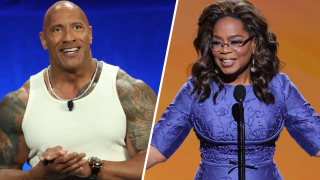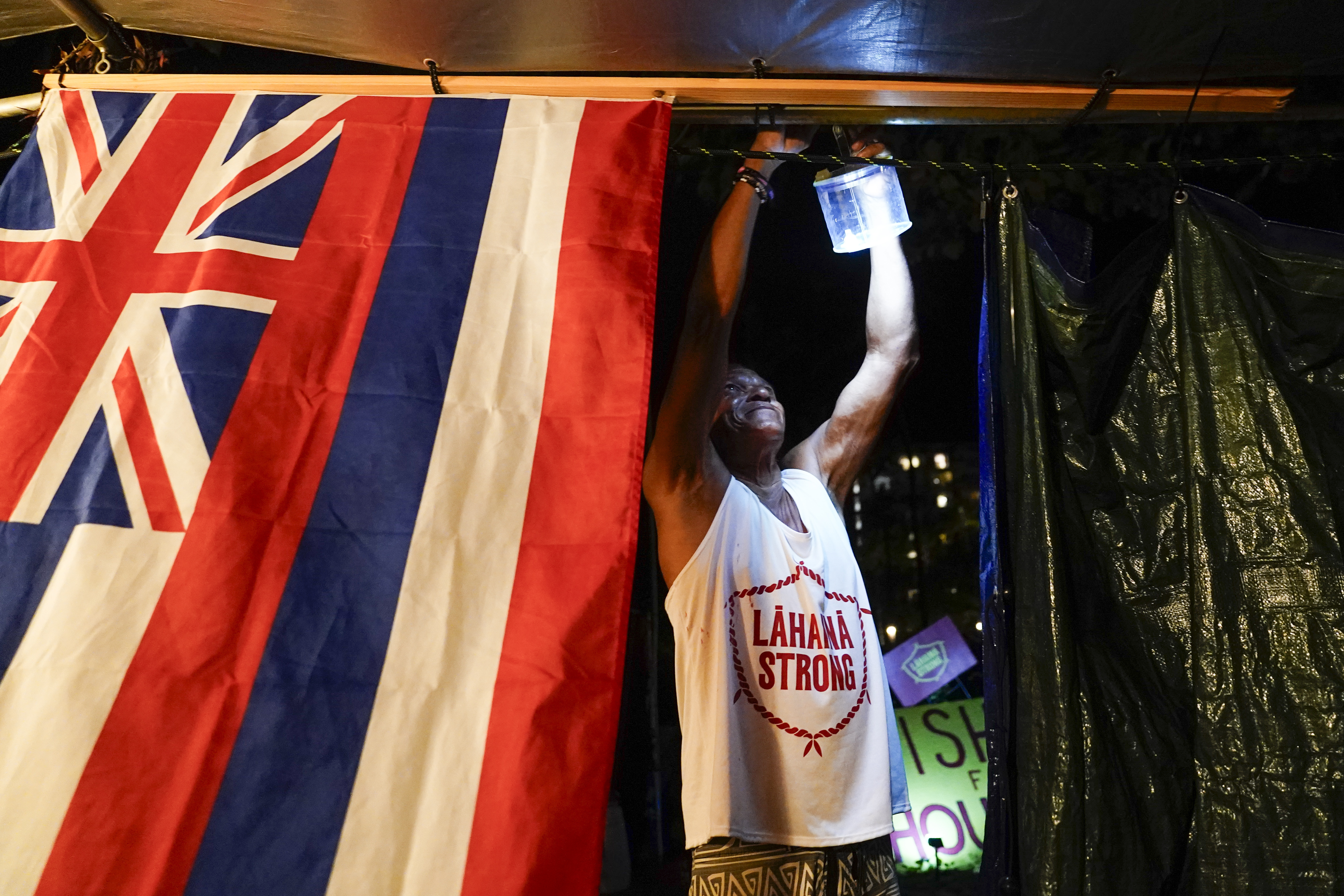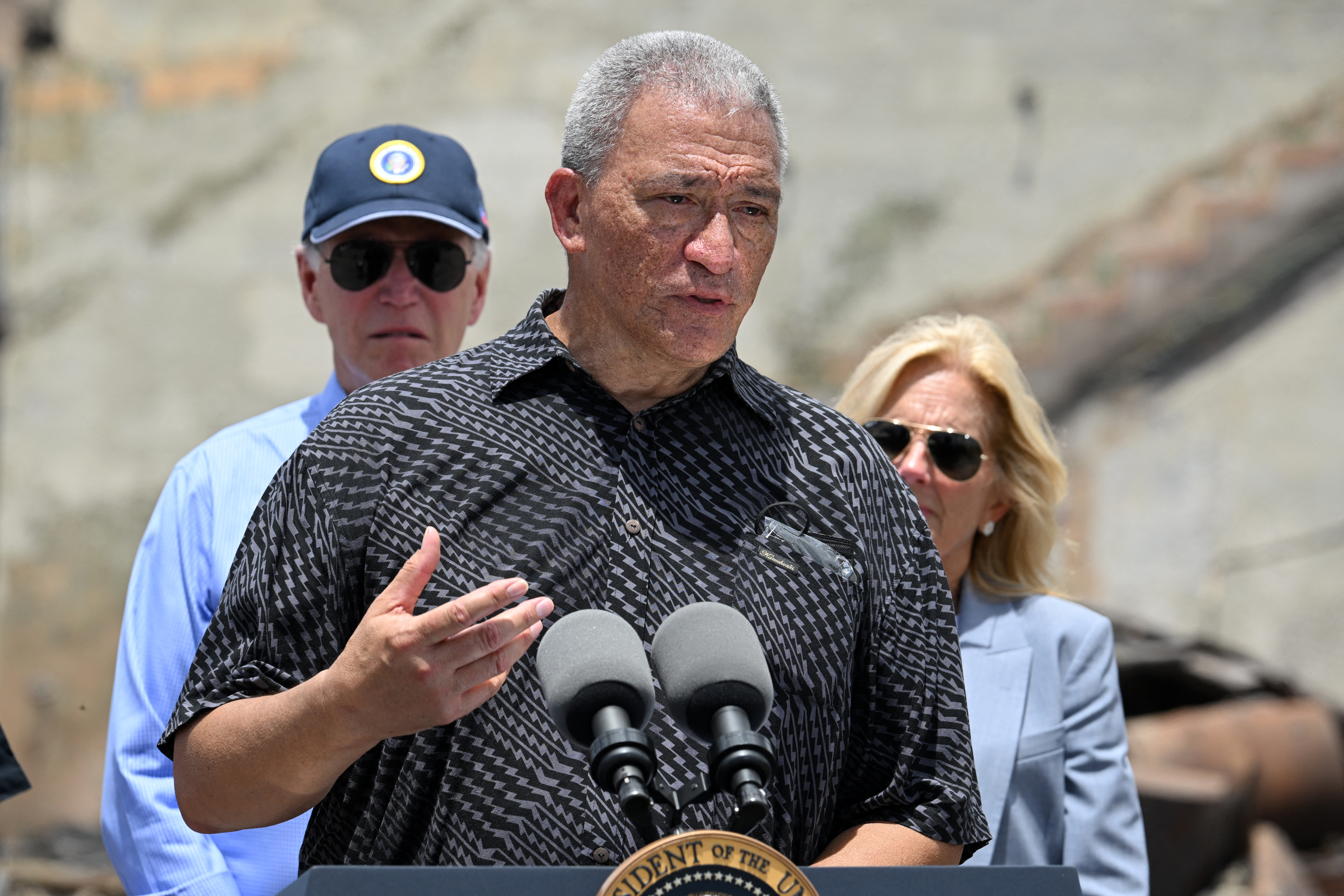
Lana Vierra misses the swing set at her Lahaina home, which was reduced to ashes in the wildfires that swept through her community last summer.
“Multiple generations went through there playing in my front yard," she said. "Just with the animals and the turtles and the deer and goats that we once had in that little tiny yard.”
Watch NBC6 free wherever you are
A grandmother of four and a mother of five, Vierra had lived in the home on a corner lot since 1991. She and 10 family members, including a baby less than one year old, were displaced in the deadliest U.S. wildfire in more than a century. In the weeks that followed, she and her adult children applied for and received many different kinds of assistance, including from the People's Fund of Maui, an initiative set up by Oprah Winfrey and Dwayne Johnson.
All of them, except one adult son, have since received six monthly payments of $1,200 directly in their bank accounts from the People's Fund. Vierra credits the payments with helping them stay current on their mortgage, which they had to pay even though the house was destroyed. When she learned she would receive direct payments, she said, “That was in the back of my head that if I had to use it, I had it. And it would probably save my house.”
Get local news you need to know to start your day with NBC 6's News Headlines newsletter.
When Winfrey and Johnson launched the People's Fund for Maui, which benefitted people who lost their homes in the wildfires, they committed $10 million and asked others to join them. At the time, the request was met with some criticism, given especially Winfrey's wealth and extensive estate in Maui.
In the end, the Entertainment Industry Foundation, a longtime nonprofit that helps celebrities administer charitable work and that managed the distribution of the funds, said it raised almost $60 million. That money was dispersed between September and February to some 8,100 adults — a significant portion of the 12,000 people the state of Hawaii estimates were displaced.
The foundation wouldn't say exactly how much Winfrey and Johnson gave in total, but a list of other contributors indicates the bulk came from them. EIF said more than 20,000 individuals and companies donated to the fund.
In September, Winfrey posted a video on social media thanking supporters, saying, “Your generosity, I guarantee you, is going to touch the lives of many families.”
Over many years, the disaster response community has grown to trust direct cash transfers like these as a very useful tool, said Shannon Doocy, a professor at the Bloomberg School of Public Health at Johns Hopkins University. Despite initial fears of misuse, she said, research has shown cash transfers overwhelmingly benefit the intended recipients who spend it on essentials like housing and food.
“Generally, there’s the idea that cash provides dignity and choice, that it’s a more cost effective use of assistance, ” said Doocy. “Because not every household has the exact same needs, and households know their needs better than outside organizations.”
Many nonprofits and government programs now use direct cash transfers, including others in Maui, following disasters.
Vierra's family has tried to save all the money they've received, including from a GoFundMe that family members set up, direct gifts strangers sent to her daughter’s Venmo account and a gift from a fundraiser Fox News host Will Cain started. They will need that money — and more — to rebuild, though those plans are still very distant.
She said they are extremely grateful to everyone who donated and for the mutual aid efforts that were set up immediately after the fires. Those local efforts were how most people received assistance in the first weeks after the fire, said Maui-based attorney Lance Collins, who is representing some survivors.
“People felt that, in general, there was a tremendous outpouring of generosity by individuals and community groups and I think that Oprah and The Rock fell into that category,” he said.
Most of Vierra's family has been staying in hotels, an initial boon to the disaster response in a community where demand for housing was already extremely high before 12,000 people lost their homes in the fires. However, uncertainty and issues with mental health have been growing among those staying in hotels, according to nonprofits working with them, said Lauren Nahme, senior vice president of the Maui Recovery Effort at the Hawai‘i Community Foundation.
In January, state and county governments along with the foundation and the Federal Emergency Management Agency announced a $500 million commitment to build 3,000 housing units that would offer displaced people shelter for at least 18 months. The foundation committed $50 million to the effort, its single largest grant from its Maui Strong fund, which it opened immediately after the wildfires. In total, the fund raised $189 million from more than 250,000 people all over the world.
The foundation followed a disaster response plan it had crafted in 2019, in anticipation of a possible catastrophic event. It has paid out $89 million in grants so far, purposefully directing the majority of its support toward recovery and stabilization efforts which will extend over months and years. This is the work that direct cash transfers won't address, including providing services, strengthening social support systems and rebuilding with the next potential disaster in mind.
Kaimana Brummel, who leads fundraising at a Seabury Hall, a private school in Maui, was invited to offer some thoughts about the design of the People’s Fund of Maui. She said she suggested that the fund make every adult who was displaced eligible for a direct cash transfer instead of just every household.
Brummel said what she saw of Winfrey and Johnson’s approach made her feel that they were approaching this gift with the spirit of a Hawaiian word, “‘kahiau.’ And it means to give lavishly, with no expectation of getting anything in return.”
Barry Probst, a therapist whose family has lived on Lahaina for four generations, said the absolute best case scenario is that he and his wife would rebuild and move into a new home in 2026. They are lucky to stay in a second bedroom of a condo owned by good friends, who spend half the year in Hawaii. He's used the funds he received from the People's Fund of Maui to twice pay for repairing his car and also to complete an intensive training on trauma treatment he hopes to use to help others in the community.
“For the rest of the world, August 8th was an event that happened and they go on with the rest of their lives and rightfully so,” said Probst. “But for us that were directly impacted and live here, it’s something that we have to navigate on a daily basis.”
Associated Press coverage of philanthropy and nonprofits receives support through the AP’s collaboration with The Conversation US, with funding from Lilly Endowment Inc. The AP is solely responsible for this content. For all of AP’s philanthropy coverage, visit https://apnews.com/hub/philanthropy.



